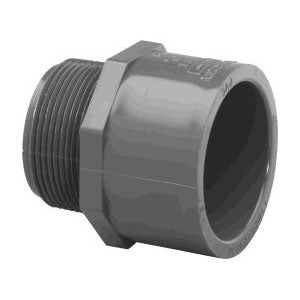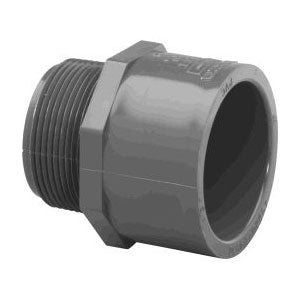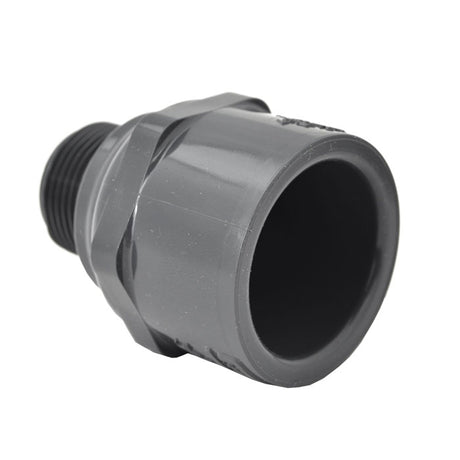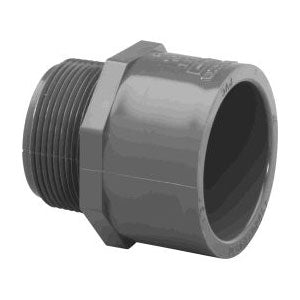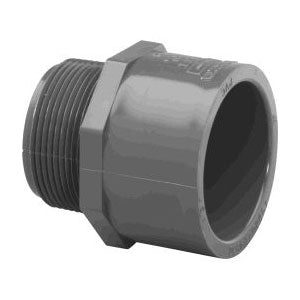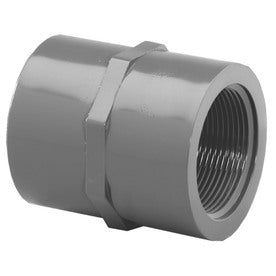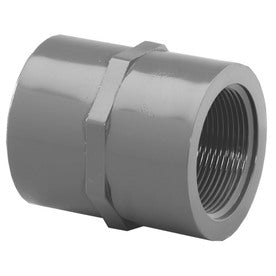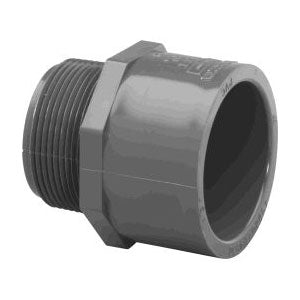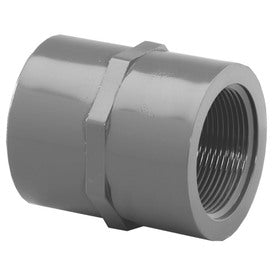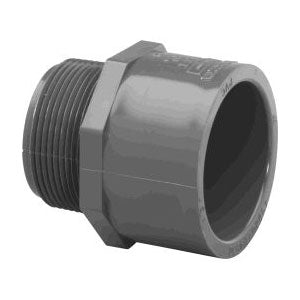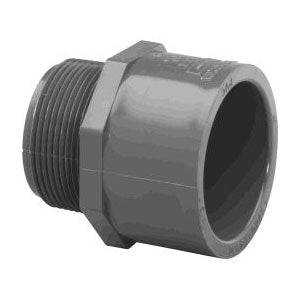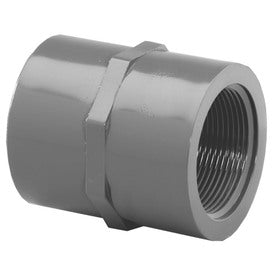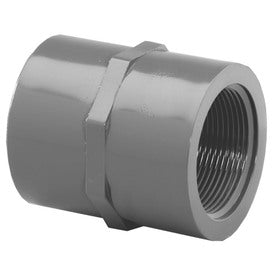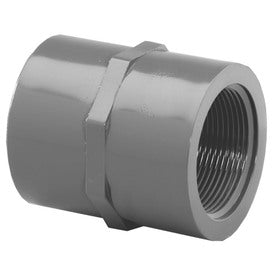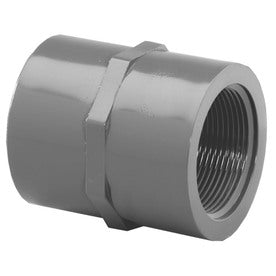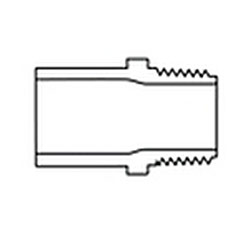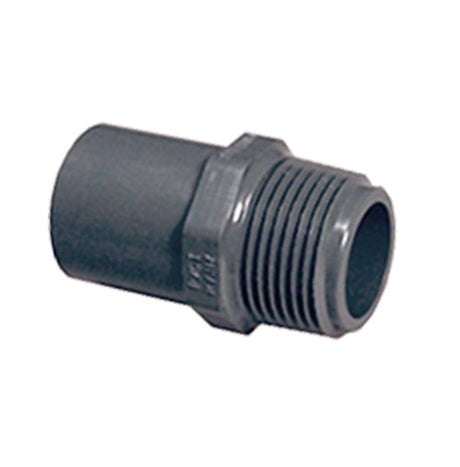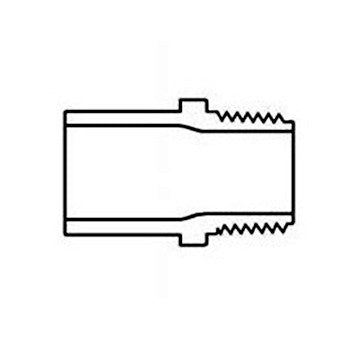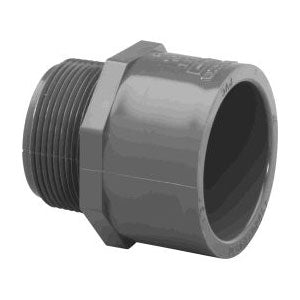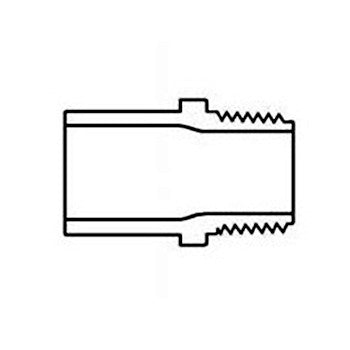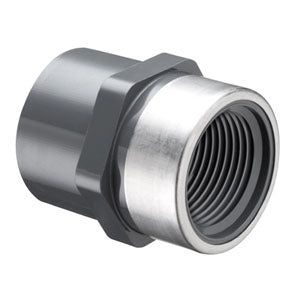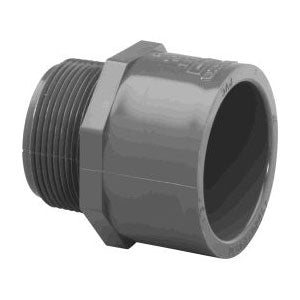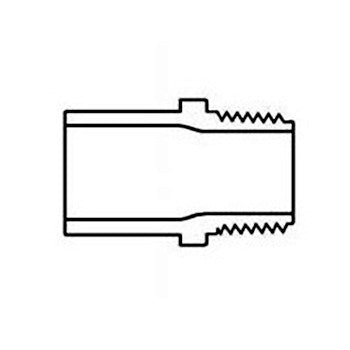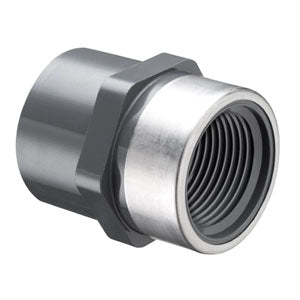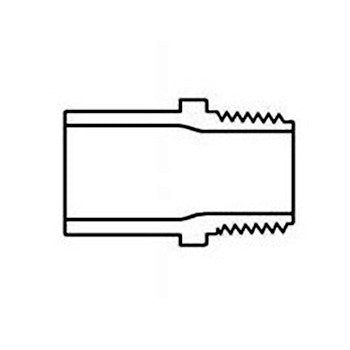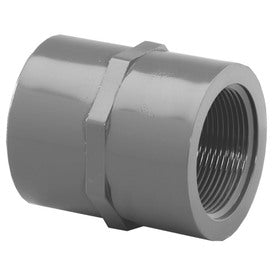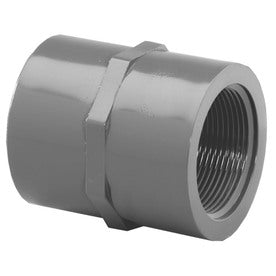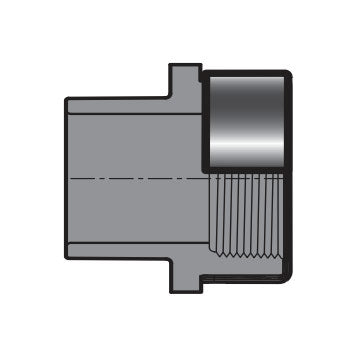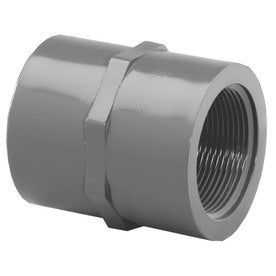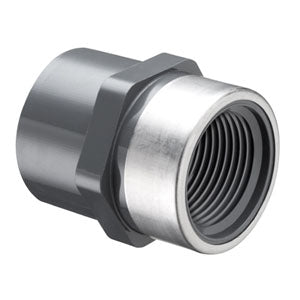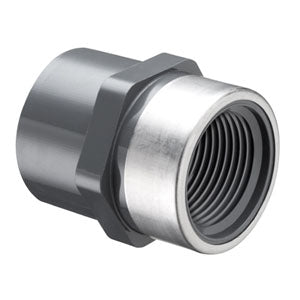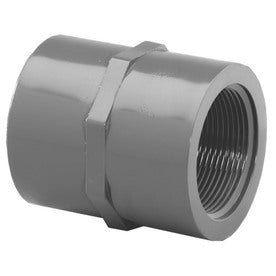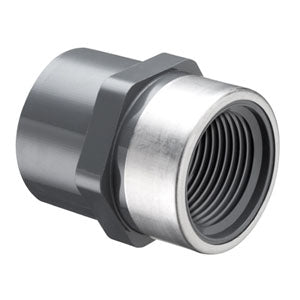-
1" Schedule 80 PVC (MPT x S) Male 836-010
$5.50Unit price /Unavailable -
2" Schedule 80 PVC (MPT x S) Male 836-020
$13.44Unit price /Unavailable -
3/4" x 1" Sch 80 PVC Reducing Male Adapter - MPT x Socket 836-102
$7.84Unit price /Unavailable -
3/4" Schedule 80 PVC (MPT x S) Male 836-007
$3.19Unit price /Unavailable -
1-1/2" Schedule 80 PVC (MPT x S) Male 836-015
$9.28Unit price /Unavailable -
1" Schedule 80 PVC (S x FPT) Female 835-010
$5.50Unit price /Unavailable -
3/4" Schedule 80 PVC (S x FPT) Female 835-007
$3.40Unit price /Unavailable -
1/2" Schedule 80 PVC (MPT x S) Male Adapter 836-005
$2.93Unit price /Unavailable -
2" Schedule 80 PVC (S x FPT) Female 835-020
$21.58Unit price /Unavailable -
1-1/4" Schedule 80 PVC (MPT x S) Male 836-012
$6.41Unit price /Unavailable -
3" Schedule 80 PVC (MPT x S) Male 836-030
$16.98Unit price /Unavailable -
1-1/2" Schedule 80 PVC (S x FPT) Female 835-015
$10.06Unit price /Unavailable -
1/2" Schedule 80 PVC (S x FPT) Female 835-005
$2.28Unit price /Unavailable -
1-1/4" Schedule 80 PVC (S x FPT) Female 835-012
$8.18Unit price /Unavailable -
3" Schedule 80 PVC (S x FPT) Female 835-030
$31.31Unit price /Unavailable -
3/4" Sch 80 PVC Male Adapter SPG x MPT 861-007
$5.90Unit price /Unavailable -
1" Sch 80 PVC Spigot Male Adapter - Spig x MPT 861-010
$7.24Unit price /Unavailable -
4" Schedule 80 PVC (MPT x S) Male 836-040
$30.12Unit price /Unavailable -
2" x 1-1/2" Sch 80 PVC Male Adapter - Mipt x Soc 836-251
$28.91Unit price /Unavailable -
1-1/2" Sch 80 PVC Spigot Male Adapter (Spig x MPT) 861-015
$8.81Unit price /Unavailable -
1" x 3/4" Sch 80 PVC Male Adapter - MPT x Soc 836-131
$7.84Unit price /Unavailable -
2-1/2" Schedule 80 PVC (MPT x S) Male 836-025
$15.27Unit price /Unavailable -
4" Schedule 80 PVC (S x FPT) Female 835-040
$58.73Unit price /Unavailable -
1/2" Sch 80 PVC Spigot Male Adapter - Spig x MPT 861-005
$3.34Unit price /Unavailable -
1" Sch 80 PVC Female Adapter, SLIP X FPT Special Reinforced (835-010SR)
$9.94Unit price /Unavailable -
6" Schedule 80 PVC (MPT x S) Male 836-060
$76.29Unit price /Unavailable -
2" Schedule 80 PVC Spigot Male Adapter - Spigot x MPT 861-020
$11.00Unit price /Unavailable -
3/4" Sch 80 PVC Female Adapter, SLIP X FPT Special Reinforced (835-007SR)
$6.69Unit price /Unavailable -
1-1/4" Sch 80 PVC Spigot Male Adapter - Spig x MPT 861-012
$7.89Unit price /Unavailable -
6" Schedule 80 PVC (S x FPT) Female Adapter 835-060
$71.40Unit price /Unavailable -
2-1/2" Schedule 80 PVC (S x FPT) Female 835-025
$27.78Unit price /Unavailable -
3/4" Sch 80 PVC Female Adapter SPG x SR FPT 878-007SR
$6.50Unit price /Unavailable -
1/4" Schedule 80 PVC (S x FPT) Female 835-002
$4.16Unit price /Unavailable -
1/2" Sch 80 PVC Female Adapter, SLIP X FPT Special Reinforced (835-005SR)
$4.50Unit price /Unavailable -
1-1/4" Sch 80 PVC Female Adapter, SLIP X FPT Special Reinforced (835-012SR)
$16.09Unit price /Unavailable -
3/8" Schedule 80 PVC (S x FPT) Female 835-003
$3.91Unit price /Unavailable -
1-1/2" Sch 80 PVC Female Adapter, SLIP X FPT Special Reinforced (835-015SR)
$19.81Unit price /Unavailable

